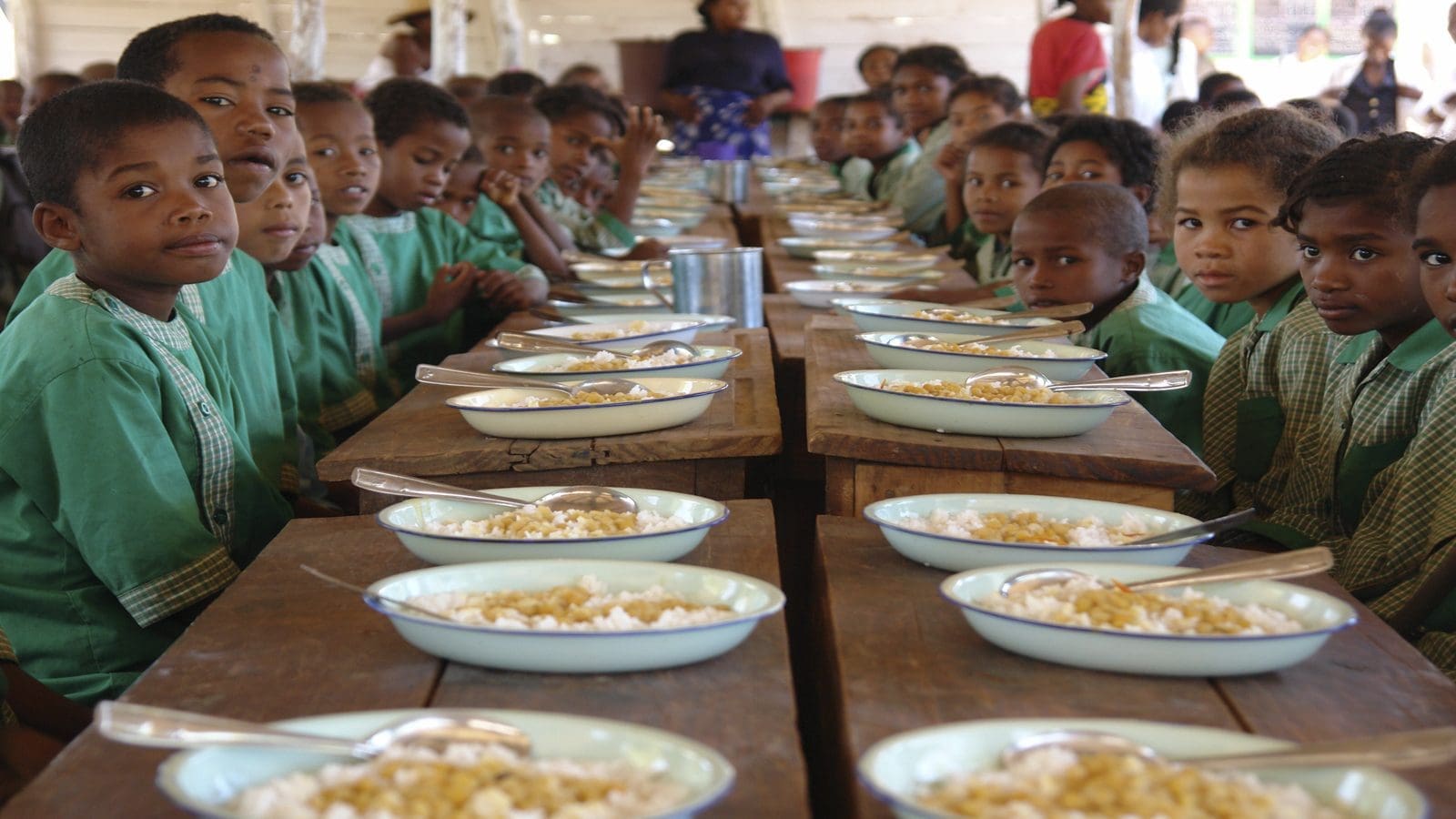GLOBAL-The Rockefeller Foundation has donated a US$10.7 million grant to The United Nations World Food Programme (WFP) to help the agency support school feeding programs in Benin, Ghana, Honduras, and India.
The grant entails a two-year-and-a-half initiative that is part of The Rockefeller Foundation’s Good Food strategy, which focuses on increasing access to affordable, healthy food; reducing greenhouse gas emissions in the food system; and expanding economic opportunity for small and mid-size food producers.
Rockefeller in a statement noted that the grand will focus on including fortified foods in school meals as well as advocating for more nutritious food throughout the programs.
Child malnutrition is a global concern but a catastrophe in developing countries. It can permeate all aspects of health, growth, cognition, motor, and social development of young children leading to more than 50% of deaths in these children.
However, the School feeding program is among the known ways that states can alleviate children’s malnutrition, and is the most extensive social safety net in the world, directly benefitting 388 million children globally.
The programs also support local agriculture, markets, and healthier diets while improving health, nutrition, and education in vulnerable communities.
However, countries often struggle to provide adequate healthy foods to prevent malnutrition in school-aged children. The situation has even worsened with the increasing costs of wheat and maize due to the combined effects of the Covid-19 pandemic and the war in Ukraine.
Despite the global economic hiccups, Carmen Burbano, Director of the World Food Programme’s School Feeding Division said that WFP and The Rockefeller Foundation share a commitment to ending hunger, strengthening food systems, and ensuring life-long prosperity for all.
In Benin, Ghana, and Honduras, the Foundation grants are intended to impact the lives of not only the children under the feeding program but also promote local food production and small-scale farmers.
Through WFP, the project will also provide school cooks with information on optimal nutrition for children as a way to ensure healthy eating and mitigation measures for malnutrition.
In India, the project will support the technical assistance provided by WFP to the government’s school feeding program, directly benefitting 325,000 children.
The program further seeks to reach more than 110 million school children through food fortification and communication campaigns that encourage healthier eating.
Meanwhile, the newly announced project builds on a previous grant to WFP from The Rockefeller Foundation to address malnutrition among children in Burundi, Kenya, and Rwanda which brought fortified beans and fortified wholegrain maize meals into school meals.
This new US$ 10.7 million initiative will also contribute to the School Meals Coalition, which brings together 73 countries committed to ensuring that by 2030 every child worldwide receives a healthy, nutritious daily meal in school.
For all the latest food industry news from Africa and the World, subscribe to our NEWSLETTER, follow us on Twitter and LinkedIn, like us on Facebook and subscribe to our YouTube channel.










